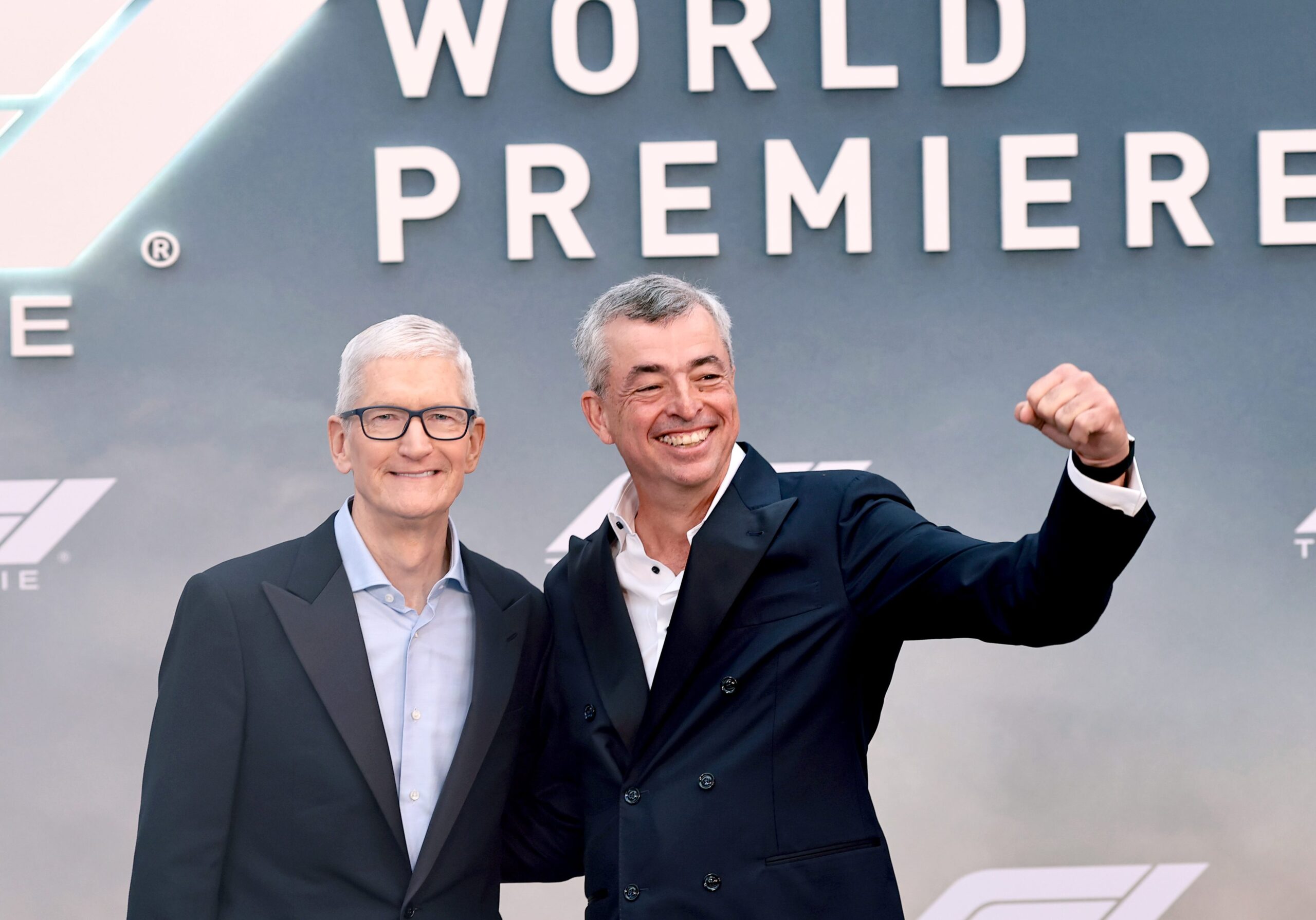
Apple’s Hollywood ambitions have been under the microscope since the company entered the streaming wars in November 2019, promising a premium experience centered on a curated slate of original content instead of the sprawling libraries offered by rivals like Netflix. The results so far have been mixed: Apple TV++ has garnered critical acclaim but trails competitors in subscribers, while reportedly racking up annual losses exceeding $1 billion. In 2025, however, the narrative around Apple TV+ and its original film slate may finally be shifting—for the better.
This summer, Apple Original Films landed its first bona fide blockbuster. F1, the high-octane racing drama starring Brad Pitt, roared into theaters with a $55.6 million domestic debut and $144 million globally, exceeding expectations and delivering Apple its biggest theatrical opening yet. On the streaming side, Apple TV+ is also gaining momentum. Season 2 of the dystopian workplace drama Severance just earned 27 Emmy nominations, the most of any series this year.
Several of the platform’s most popular series are returning soon. The fifth season of Slow Horses, the Gary Oldman-led spy drama, premieres Sept. 24. Production is also underway on a fourth season of the fan-favorite sports comedy Ted Lasso. Among this year’s major new entries is Pluribus, a sci-fi drama from Breaking Bad creator Vince Gilligan, debuting Nov. 7.
“We studied it for years before we decided to do (Apple TV+),” Apple CEO Tim Cook recently told Variety. In the interview, he pushed back on the notion that Apple launched its streamer simply to bolster its ecosystem. “I know there’s a lot of different views out there about why we’re into it,” Cook explained. “We’re into it to tell great stories, and we want it to be a great business as well. That’s why we’re into it, just plain and simple.”
Six years in, Apple TV+ remains a boutique player in a market dominated by Netflix and Disney+. Apple doesn’t disclose subscriber counts, but estimates put its global paid base around 45 million—well behind Netflix’s 300 million-plus. Still, unlike Netflix, Apple doesn’t need streaming to be a profit engine, even if its sky-high spending has raised eyebrows.
This approach is deliberate, according to Cristofer Hamilton, an industry insight manager at Parrot Analytics. “These recent wins, from the box office success of F1 to the awards recognition for Severance, reinforce its identity as a prestige-first platform,” he said. Parrot data consistently shows that Apple’s top titles have strong demand per capita, though the platform’s overall reach still lags behind Netflix and Amazon Prime Video.
Hamilton noted that Severance’s first season brought in more than $200 million in estimated global streaming revenue, showing that Apple’s prestige-focused model can deliver financially, too.
With its immense resources, Apple has more room than most to define success on its own terms. “Apple TV+ (and also Prime Video) have more freedom to define what sustainability means for them than a company like Netflix whose core business is streaming and will have to think about content investments in a more traditional ROI [return on investment] way,” Hamilton said.
That freedom allows Apple to keep investing in high-end, auteur-driven projects even if they don’t make waves in subscriber counts. The company can afford to take creative risks that reinforce its brand, and it’s showing no signs of slowing down. After all, a $1 billion annual loss is a drop in the sea of Apple’s $391 billion annual revenue. In other words, Apple can afford to play the long game in Hollywood—until it decides it no longer wants to.
<




